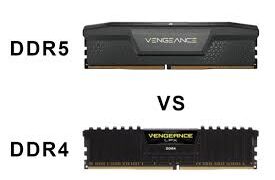How much RAM is enough? The answer depends on what kind of user you are. If you are a heavy user and use many apps, play online games, watch YouTube, or do video recording, you need a bigger RAM size. If you are only using your phone for basic texting, calling, browsing, photo-taking, and occasional opening of apps to listen to music, a smartphone with 2 to 3 GB is perfectly fine. It will be enough for multitasking without stopping the apps or rebooting.
What is RAM?
Random Access Memory (RAM) refers to the short-term digital storage of computers and devices. This super-fast memory stores all the apps you use since you turn on your smartphone. RAM allows you to return to the app you previously opened and resume what you are doing without any delay.
How much RAM do users typically use?
Average users can consume 1.8 GB of RAM in a smartphone with the Android 11 operating system. Most budget phones that run on Android 10 and 11 operating systems are equipped with factory 4 GB or 2 GB RAM. A 4 GB RAM is a decent option because it will let you run multiple apps and run heavy memory apps at a time. Mid-range smartphones have 8 GB RAM, while phones with 12 GB RAM would be ideal for more advanced users.
Here are some apps and the average RAM they consume:
- YouTube – 230 MB
- Google Play – 200 MB
- Spotify – 300 MB
- WhatsApp – 260 MB
- Twitter – 420 MB
- Gmail – 500 MB
- Google Photos – 440 MB
- 3 opened tabs in Google Chrome – 800 to 900 MB
- Candy Crush -375 MB
What does RAM provide to smartphone users?
- Without RAM, the mobile apps would auto-close when you open another app. This eliminates the hassle of reopening the app and looking for the part you previously browsed.
- The higher the RAM your smartphone has, the more applications it stores, allowing easier access to all when you are multitasking.
- It helps the smartphone work fast.
- The RAM serves as your virtual storage, which is accessible anytime and anywhere, as long as you have your phone with you.
- Whenever you turn on your smartphone and open a new app, the phone will pull the app’s data and the OS from the main storage. The bulk of the pulled information will be stored in the RAM, letting you use the features and elements anytime you want.
- Once you are done using the app, your smartphone RAM stores the app and what you are doing, keeping them there even if you switched to a different app.
- In essence, all the apps you used are running in the background. When you return to any of them, it will open in the exact part as if you never left because the RAM stored it for you.
- While your phone can do what the RAM does, it would be a slower process. The RAM will boost the functionality and performance of your mobile device.
Takeaway
Think of your phone as a power-packed mini-computer with RAM that stores the data of active apps. A high RAM capacity would let you optimize phone usage and enjoy your favorite apps. While you won’t be using all the available RAM capacity, you can do more and access the apps quickly when you need them.



































